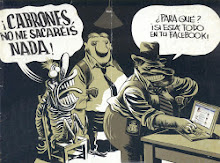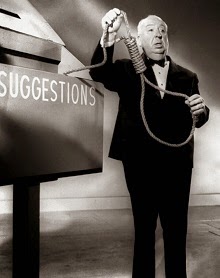Saeed Saeed
Murder was in the air at Istanbul’s Pera Palace over the weekend.
The literary hotel in Istanbul - run by the Dubai based Jumeirah Group - which hosted the likes of authors Agatha Christie, Ernest Hemingway and Ian Fleming in its 125 years, opened its doors to a new generation of writers with crime on their mind.
Running for its third edition, the two-day Black Week Festival – which concluded yesterday – brought together an international cast of mystery writers to discuss the craft and appeal of their trade.
Despite the festival’s young age, Black Week – the name is based on the term “black novels”, which is used to describe Turkish crime fiction has already managed to bring some esteemed authors to the city such as the UK’s Alexander McCall Smith and Norwegian noir specialist Joe Nesbo.
This year arguably had the most-high profile of all with British best-selling author and present James Bond novelist Anthony Horowitz and Canada’s Shari Lapena. whose 2016 novel The Couple Next Door has been a runaway success.
With both writers seasoned performers at international literary festivals, they could not hide their astonishment at their 19th century regal surroundings.
“It is like staying in a museum,” says Lapena. A self-confessed “huge fan” of Agatha Christie – who allegedly wrote parts of 1934’s Murder On The Orient Express in room 411, Lapena says she has been soaking up all the literary vibes of the establishment.
“The fact that I am staying only a couple rooms where Agatha stayed was just surreal to me,” she says.
“I wanted to go there and pay a visit, but the hotel said there was someone staying in there. I will hopefully see it before I leave.”
Indeed, despite all of its heritage, the Pera Palace is fully functioning business after all; book lovers can stay in rooms occupied by Hemingway (facing the ocean off course) and French writer Pierre Loti (with views of the coast and downtown). However, it is Christie’s room - with its surprisingly minimal burgundy and wooden furnishings – that remains the hotel’s calling card.
Horovitz says visiting the room was almost akin to a spiritual experience.
“I sat on the desk where she wrote parts of Murder On The Orient Express,” he says.
“It is exciting, you feel the flow of inspiration, history and great writing. I mean, when I wrote books on Sherlock Holmes and James Bond, I bought books that had signatures of Sir Arthur Conan Doyle and Ian Fleming because I wanted to have that link to the past. Because great writing is like a force and energy that you wanted to be in contact with and hopefully draw some of it to your own work.”
There was none of those historical flourishes in the modern surroundings of the hotel’s ballroom, where the festival sessions focused on the overall appeal of crime fiction.
One of which is how the genre’s plotlines often play with memory.
“I think that is basically the fundamental block of all fictions,” says Jeffrey Moore. The Canadian author, whose award winning 2004 novel The Memory Artists revolves around a central character’s battle with Alzheimer’s, states that all good writing attempts to describe first time moments.
“That’s really the challenge with all fiction,” he says.
“Literature tries to remind us of things we tend to forget. Stories are about trying to take all these strands of memory and harmonising them through the writing. We try to describe like a child seeing a rainbow through the mist for the first time or a distant ship passing through night."
Turkish author Alper Canıgüz, who is behind a series of crime novels based on a semi-mute genius child investigator, puts his success down to crime literature providing certainty and emotional succour in these challenging times.
“This is why we also love antiheroes because they are powered by a sense of vengeance and that is a natural feeling off course” he said in his session.
“It is also about the need to see good triumph evil, which you don’t much see in reality today. Crime novels provides that satisfaction that we often miss out on.”
Lapena does not necessarily agree with that stark assessment. She says crime novels provide more than appeal to our darker impulses.
“It’s not so much about revenge but about how characters can somehow feel powerless. It is about them feeling downtrodden and through their journey they get their power back. I don’t look at that as necessarily revenge, which I think is quite negative. I know for my work, for instance, it is about empowerment,” she says.
“Also, crime fiction has expanded now. It is not so much black-and-white. There is a big greyer area so it’s not so much about black-and-white anymore. There is more ambiguity now in these stories and that reflects real life. I like to think of crime fiction as reality going of the rails.”

























.jpeg)








0 comentaris:
Publica un comentari a l'entrada